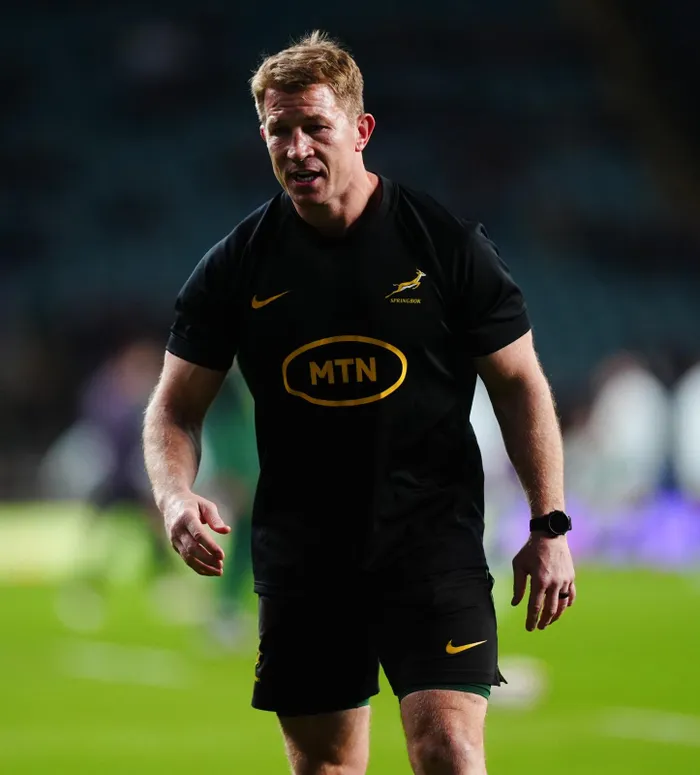How the Wallabies' bruisers have boosted their attacking play ahead of Springboks clash

Springbok defence coach Jerry Flannery says the Wallabies' attacking breakdown is key to their attack.
Image: Backpagepix
A lot has been made of the Wallabies’ newfound hard edge since the return to the starting line-up of players such as star forwards Will Skelton, No. 8 Rob Valetini and Taniela Tupou.
All three had a massive impact on the Wallabies’ performance in the second and third Tests against the British and Irish Lions, bringing much-needed physicality to their efforts in the collisions and at set-piece time.
Springbok defence coach Jerry Flannery suggests this has also elevated their attacking game, as their ruck speed improved with these powerful ball-carriers getting over the advantage line and giving their cleaners the best chance to secure possession.
Australia scored some fantastic tries in those Tests, as they managed to bring their young but extremely dangerous outside backs into the game.
Overall, the Springboks’ defence has been solid against the Barbarians, Italy and Georgia, conceding just 41 points across those four matches. However, the majority of those points came in the first Test against Italy, where the visitors managed to score some excellent tries—particularly in the second half, when they dominated the home side.
Flannery says the Springboks’ defensive system won’t change much, but certain focus areas will be emphasised where they believe the Wallabies could pose a threat in Saturday’s Rugby Championship opener at Ellis Park (5:10pm kick-off).
“When you bring in Tupou, Valetini and Skelton, they’re massive ball-carriers, and they can give you huge momentum,” Flannery told reporters in Johannesburg on Tuesday. “This then feeds into the breakdown narrative, and they get quicker ball. So that was obviously a big part of it, and I suppose they also give them a little more of a confrontational edge outside of play.”
The Boks head into the match with Bulls fetcher Marco van Staden wearing the No. 6 jersey, while captain Siya Kolisi will pack down at the back of the scrum. The home side will also have the luxury of Kwagga Smith coming off the bench, with his energy and ability to slow the ball down — or steal it — at the breakdown.
The Wallabies, under Joe Schmidt, employ a number of structured plays in the later phases of their attack. Flannery experienced this first-hand during their time together in Ireland, and knows just how important it is to disrupt the Wallabies at the breakdown.
“For most teams in attack, getting quick ball is going to be the big thing for them,” Flannery added.
“When you look at how meticulously Joe Schmidt plans his plays, you could see that the players were really aligned to a plan that might stretch five or six phases—to retain the ball and be in the right place. You have to be really, really detailed at the breakdown.
“I think when you look at that, there are two players instantly cleaning all the time.
“We were aware — from when he worked in Ireland and the work he did with New Zealand — of his philosophy and the way he plays.
“And you can see a lot of that, but you can also see it developing from last year into this year. They play very direct rugby, with a huge amount of detail. The breakdown is a massive part of their game.”
Flannery says the Wallabies have definitely improved since facing the Springboks in Australia last year. They had a strong November tour to Europe, beating England, and were good value against the Lions.
“If you look at them from a timeline point of view, at the last World Cup they looked a little rudderless,” said Flannery.
“Joe is a brilliant coach. The level of detail he brings is phenomenal. I saw the impact he had in Ireland — making players perform far above their perceived capacity.
“He’s come in and he’s got Australia firing again. I think the current narrative is that Australian rugby is on the up, and they’ll be targeting us, looking to keep building on that.”
Related Topics: